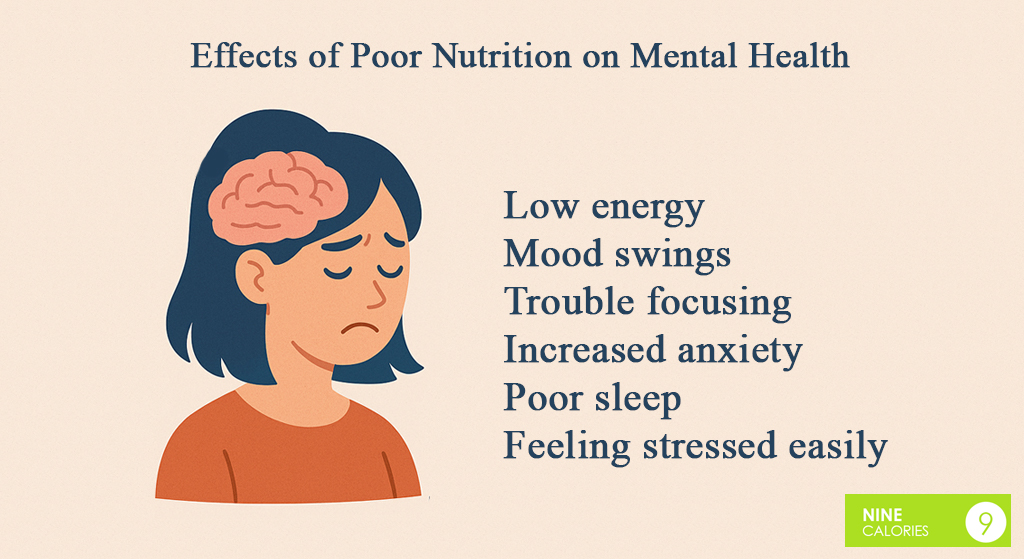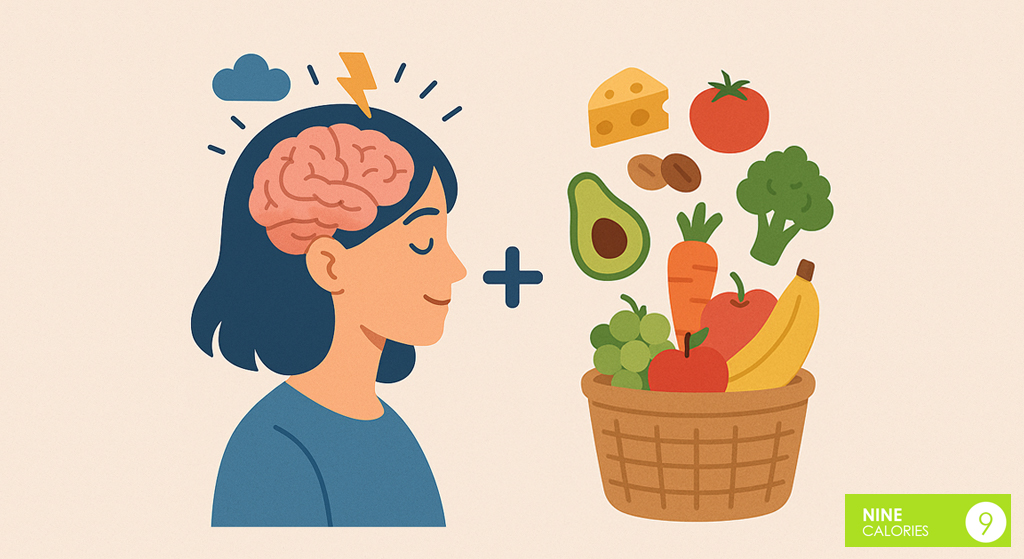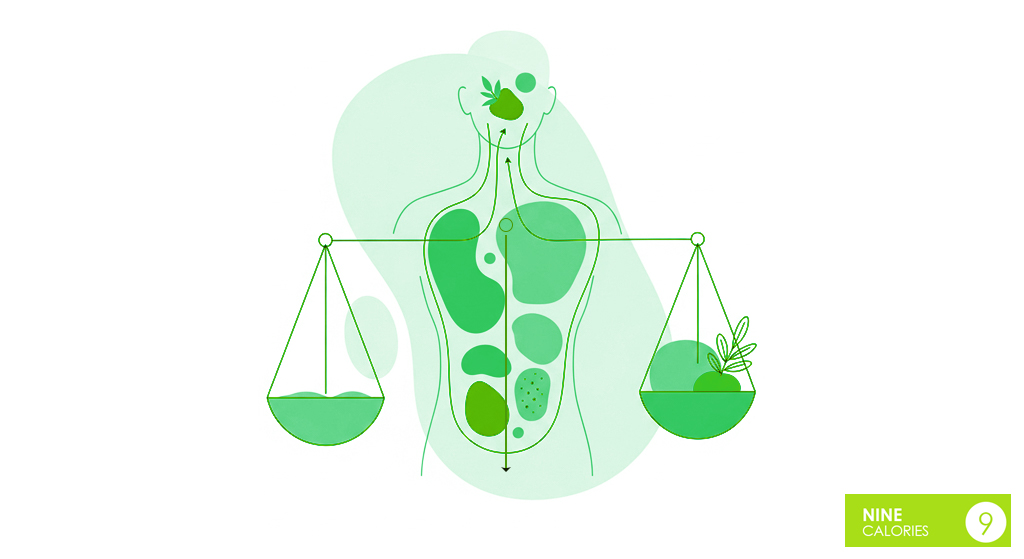Table of Contents
Your brain relies on the food you eat. Like your heart or muscles, it needs specific nutrients to function well. Many people view mental health separately from physical health. However, they are closely linked. Your diet directly influences your mood, focus, and ability to manage stress. If you want to understand how food choices affect your emotions and mental clarity, this article is for you.
How Food Powers Your Brain
Your brain uses about 20% of your body’s energy. It needs constant fuel to work properly. Key nutrients include:
- Glucose: Provides energy for brain cells.
- Vitamins and Minerals: Support brain signaling and repair.
- Healthy Fats: Build brain cell membranes.
- Amino Acids: Create chemicals that regulate mood.
- Water: Maintains focus and prevents fatigue.
Without these, your brain struggles. Over time, poor nutrition raises the risk of depression, anxiety, and cognitive decline.
Essential Nutrients for Mental Health
Certain nutrients directly support your brain. Below are six key nutrients and their roles.
1. Omega-3 Fatty Acids
Omega-3s are healthy fats. They are found in salmon, walnuts, flaxseeds, and chia seeds. These fats help build brain cell membranes. They also improve communication between brain cells.
Benefits include:
- Improved mood stability
- Lower depression risk
- Better memory and focus
Low omega-3 levels are linked to mood swings and anxiety. Studies show that omega-3 supplements may reduce depression symptoms.
2. B Vitamins
B vitamins, such as B6, B12, and folate, help produce brain chemicals. These chemicals, like serotonin and dopamine, control mood and energy. You can find B vitamins in leafy greens, eggs, whole grains, and beans.
Low B vitamin intake may cause:
- Irritability
- Fatigue
- Poor concentration
- Low mood
For example, folate deficiency is common in people with depression. A balanced diet helps prevent this.
3. Iron
Iron carries oxygen to the brain. Without enough, you may feel foggy or tired. Severe iron deficiency can mimic anxiety or depression symptoms. Iron-rich foods include spinach, lentils, red meat, and pumpkin seeds.
Vegetarians and vegans should monitor iron intake. Plant-based iron is less easily absorbed. Pairing it with vitamin C foods, like oranges, improves absorption.
4. Magnesium
Magnesium calms nerves and reduces stress. It is found in nuts, dark chocolate, leafy greens, and whole grains. Low magnesium levels are linked to anxiety and poor sleep.
For example, studies suggest magnesium supplements can reduce anxiety symptoms. Eating magnesium-rich foods supports relaxation.
5. Zinc
Zinc supports brain signaling. It also protects brain cells as an antioxidant. Low zinc levels are common in people with depression. You can get zinc from shellfish, beef, legumes, and cashews.
Research shows zinc supplements may improve mood in some cases. Whole foods are the best source.
6. Protein (Amino Acids)
Protein provides amino acids. These build neurotransmitters like serotonin, which improves mood and sleep. Good sources include eggs, fish, tofu, lentils, and dairy.
For example, tryptophan in turkey and eggs supports serotonin production. Eating protein at each meal stabilizes mood.
Effects of Poor Nutrition on Mental Health

A poor diet harms your brain. You may notice:
- Low energy
- Mood swings
- Trouble focusing
- Increased anxiety
- Poor sleep
- Feeling stressed easily
These issues may seem minor at first. Over time, they reduce your quality of life. They also make it harder to handle daily challenges.
Blood Sugar and Emotional Balance
Your brain needs steady glucose levels. Eating sugar or refined carbs, like white bread, causes problems:
- Blood sugar spikes quickly.
- Insulin lowers it rapidly.
- This leads to a crash.
These swings cause:
- Irritability
- Fatigue
- Cravings
- Anxiety
Balanced meals with protein, fiber, and fats prevent this. For example, oatmeal with nuts and fruit keeps blood sugar stable. This supports a calm mood.
The Gut-Brain Connection
Your gut and brain communicate constantly. This is called the gut-brain axis. A healthy gut supports mental health. An unhealthy gut can harm it.
Key points:
- Gut bacteria produce serotonin and other mood-regulating chemicals.
- Fiber from vegetables and grains feeds these bacteria.
- Processed foods disrupt gut health.
To support your gut and brain:
- Eat fermented foods like yogurt, kefir, or kimchi.
- Include fiber-rich foods like apples, beans, and whole grains.
- Limit sugar and artificial additives.
A healthy gut reduces anxiety and improves mood.
Real-Life Examples of Nutrition’s Impact
Nutrition affects daily life. Below are examples of how food influences mental health.
Morning Routine
Skipping breakfast or eating sugary cereal causes energy crashes. You may feel anxious by mid-morning. A breakfast with eggs, whole-grain toast, and avocado keeps you focused and calm.
Stressful Workdays
High-stress jobs increase reliance on caffeine or snacks. This leads to irritability and burnout. Packing a lunch with chicken, quinoa, and vegetables maintains energy and focus.
Students and Teens
Young people often eat fast food or skip meals. This affects their mood and grades. Regular meals with protein and vegetables improve concentration and emotional stability.
Older Adults
Older adults may eat less due to appetite changes. Low nutrient intake can worsen memory or mood. A diet with fish, nuts, and greens supports cognitive health.
Sexual Health
Poor nutrition, like diets high in sugar or processed foods, can lead to low libido and hormonal imbalances. This affects mood and intimacy. For more information on nutrition and sexual health, read the article: Fuel Your Libido: Nutrition for Sexual Health.
Practical Steps to Boost Mental Health Through Nutrition
Improving your diet does not need to be hard. Small changes make a difference. Here are seven steps:
- Eat Regular Meals: Aim for three balanced meals daily. This prevents blood sugar swings.
- Choose Whole Foods: Focus on vegetables, fruits, whole grains, and lean proteins.
- Include Key Nutrients: Eat foods rich in omega-3s, B vitamins, and magnesium.
- Limit Sugar and Processed Foods: These harm mood and gut health.
- Stay Hydrated: Drink water to support focus and energy.
- Support Gut Health: Add fermented foods and fiber to your diet.
- Track Diet and Mood: Write down what you eat and how you feel. Look for patterns.
When to Seek Professional Help
Nutrition supports mental health but is not a cure-all. If you experience:
- Persistent depression
- Severe anxiety
- Eating disorders
- Ongoing mood swings
Consult a mental health professional or dietitian. They can create a plan that combines nutrition with therapy or medication.
Myths About Nutrition and Mental Health
Misinformation can confuse your choices. Here are three myths and the truth:
- Myth: Supplements can replace a healthy diet. Truth: Whole foods provide nutrients supplements cannot fully replicate.
- Myth: All carbs harm mental health. Truth: Whole grains provide steady energy for the brain.
- Myth: Fat-free diets improve mood. Truth: Healthy fats like omega-3s are essential for brain health.
Check reliable sources before changing your diet.
Take away
Indeed, nutrition affects mental health. It affects your energy, mood, and stress resilience. Good nutrition does not solve all mental health issues. However, it is a powerful tool you can control.
Start with simple changes, like adding vegetables or eating regularly. Over time, these habits improve mental clarity and emotional balance. A well-fed brain helps you live a healthier, happier life.



